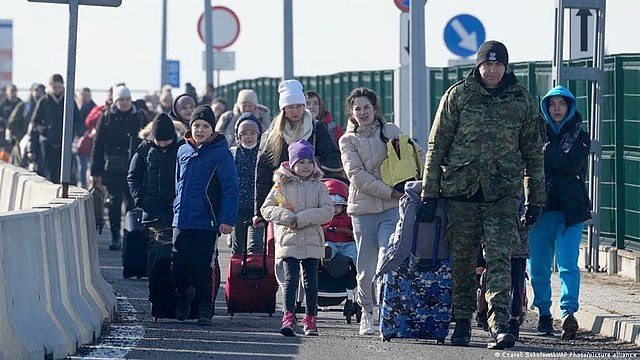Spatialized Decision-Making of Ukrainian Refugees in Germany
Research department: Politics and Planning
Funding Organization: Alexander von Humboldt Foundation
Duration: 09/2022 - 12/2023
Since Russia’s full-scale war against Ukraine began, more than 13 million people have left their homes. Six million of them left the country, with around 900 000 taking their residency in Germany. Of those who fled the country, over 700 000 found their refuge in Germany, which makes Ukrainians the biggest ethnic group of refugees in the country. However, according to the IOM data, the vast majority of refugees intend to come back home in soon perspective instead of settling down in their current places of residency.
Ukrainian migrants in Germany (as well as in the other EU countries) pose a challenge to society regarding solidarity, acceptance and integration. So, it is crucial to understand how Ukrainian migrants – as a community – perceive themselves and what plans for the future they have.
From one point of view, the experiences of Ukrainian migrants are universal. As refugees from other war-torn countries, they landed in Germany, aiming to find safety and support. On the other hand, the situation of Ukrainian migrants is different, as most of them are women with children who have gone through the disruption of their families. This fact might have a sufficient impact on their life perspectives, identification, and integration attempts, requiring detailed exploration.
Since the German government has simplified the procedure for Ukrainian migrants to gain residence permits (according to §24 of the EU Residence Act), the integration process should go more smoothly for them than for refugees undergoing standard registration procedures. On the other hand, the need to go through the lasting bureaucratic system to b receive social benefits might also impact the decision of migrant women to stay in Germany or go back to Ukraine. Such decision-making is also interconnected with identification and planning of the future (e.g. those who refuse to identify as refugees and aim to move back to Ukraine as soon as possible are also refusing integration into German society). Complex research on the spatialized decision-making of Ukrainian migrant women will help to understand better the integration process, keeping the existing identities and constructing new ones. The research will also enrich the existing knowledge about the decision-making on whether to migrate or repatriate and thus will contribute to predicting the tendencies of integration of Ukrainian migrants into German society.
The objective of this project is threefold. It seeks to explore how Ukrainian refugee women make their decision to come to German cities, how they see their stay in mid-term and long-term perspectives, and how they consider coming back to their home country. It will analyze German migration policies towards people displaced from Ukraine and its dynamics since March 2022, to understand how the policies and procedures can impact decision-making and what lessons can be learned from the case with Ukrainian migrants. And it will conceptualize the sense of temporality and "resettlement identity" in a context of displacement, decision-making and integration.


